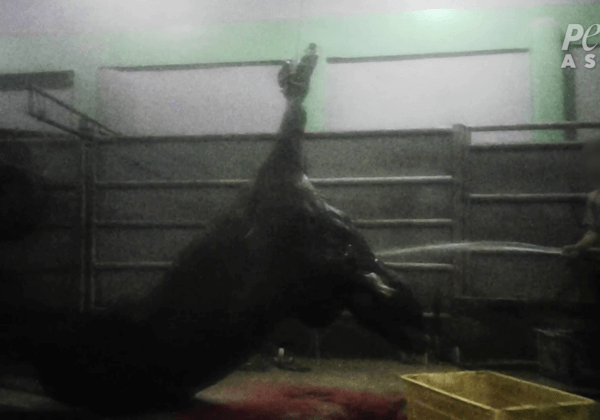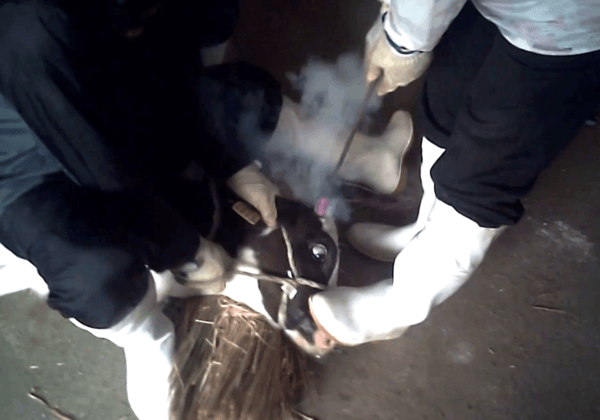Would You Rather Be a Fish?
 According to the classic song “Would You Like to Swing on a Star?” a fish won’t do anything but swim in a brook. It’s a lovely thought, but unfortunately for the billions of fish farmed for their flesh, it is no longer the case that fish spend their lives swimming free.
According to the classic song “Would You Like to Swing on a Star?” a fish won’t do anything but swim in a brook. It’s a lovely thought, but unfortunately for the billions of fish farmed for their flesh, it is no longer the case that fish spend their lives swimming free.
Nearly 90 percent of fish farmed for their flesh come from Asia, and China leads the world as the largest “fish farmer.” The top six leading producers of farmed fish worldwide in 2011 were China, India, Vietnam, Indonesia, Thailand, and Bangladesh. Yet despite the fact that billions of fish are slaughtered every year, many people have little knowledge of what fish farming is or how these intelligent animals are treated.
Fish raised in land- or ocean-based aquafarms spend their entire lives in cramped, filthy enclosures, and many suffer from parasitic infections, diseases, and debilitating injuries. High mortality rates, deformities, and stress-related injuries are common.
To increase profits, fish farmers cram as many fish as possible into the smallest spaces possible. Because they are designed to navigate vast oceans and use all their senses to do so, many fish go insane from the cramped conditions and lack of space. The tight enclosures inhibit their ability to navigate properly and cause them to knock against each other and the sides of the enclosures, causing sores and damage to their fins.
Many fish farmers lace fish feed with powerful chemicals and antibiotics to help fish survive the deadly diseases caused by the crowding and filth. It’s likely that these fish pellets are the cause of the higher PCB and dioxin contamination levels found in farmed fish. The levels in farmed fish are seven times higher than the already-dangerous levels found in their wild counterparts. In China, where water supplies are already contaminated by sewage, industrial waste, and agricultural runoff, aquafarmers have mixed illegal veterinary drugs and pesticides into fish feed in order to keep their stocks alive, leaving poisonous and carcinogenic residues in the fish that can be passed on to humans who eat their flesh.
Many farmed fish die before the aquafarm operator is ready to slaughter them. Fish who survive are starved before they are sent to slaughter in order to reduce waste contamination of the water during transport. Fish receive virtually no protection under cruelty-to-animals laws, which mean that these sensitive and intelligent animals can be slaughtered without concern for the pain and terror that they feel.
Fish deserve our consideration, just as every other animal does. So if you haven’t already, it’s time to take fish flesh off the menu and go vegetarian.
Posted by Claire Fryer








